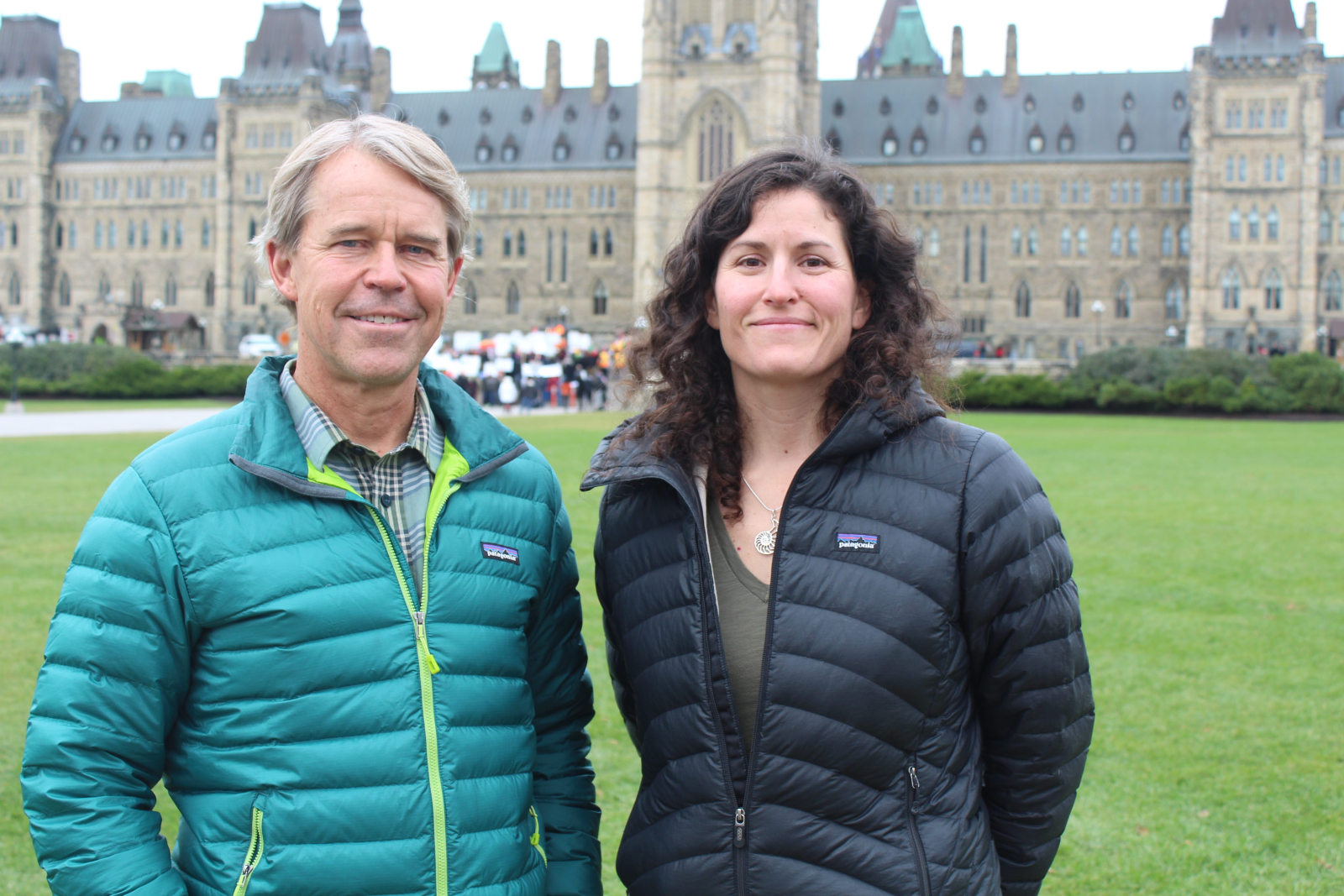Articles Menu

Federal government officials spent two days denying the findings of a scientific paper exploring research into the effects of oilsands pollution in the ocean, a week before the Trudeau Liberals gave the green light to the Trans Mountain pipeline expansion to the west coast.
Records obtained by National Observer detail how the new study was sent, along with a letter, directly to Prime Minister Justin Trudeau. They also show how the references to scientific research would trigger immediate denials in a flurry of emails from officials within government.
Much of the newly-released internal correspondence occurred over two days in a critical period before the Trudeau government announced it was approving the Trans Mountain and Enbridge Line 3 pipeline expansion projects on Nov. 29, 2016.
The new evidence, released through access to information legislation, is coming to light as opponents of the major west coast pipeline are challenging the government's approval of the project at the Federal Court of Appeal.
The $7.4-billion Trans Mountain expansion project, proposed by Texas-based Kinder Morgan, would nearly triple the capacity of a network currently linking Alberta and British Columbia as well as expand a coastal oil terminal and tanker traffic on the west coast.
The Kinder Morgan pipeline has the blessing of the National Energy Board and the Trudeau government, and is backed by the Alberta government of NDP Premier Rachel Notley. Their governments have described it as a national priority that would create jobs and open up new markets for Canada's slumping oilpatch.

But the project has also infuriated some First Nations, cities and environmental groups worried about a range of issues such as oil spills, carbon pollution and Indigenous rights. B.C. Premier John Horgan's NDP government has joined in the opposition, pledging to use all tools available to protect the province's coastline from threats posed by the project.
The letter sent to Trudeau on Nov. 21, 2016 was based on an assessment of more than 9,000 pieces of scientific literature. This paper was authored by eight academics, peer-reviewed and published in a scientific journal, Frontiers in Ecology and the Environment.
“There are large unexamined risks to the marine environment from oil sands products,” the scientists wrote in their letter to Trudeau. The letter also told Trudeau that it would be “scientifically unfounded” to assume that damage from these products can be lessened.
Yet, some government officials quickly labelled the paper “wrong” and “not true,” picking apart its conclusions about industry secrecy, the availability of scientific data and the impact of the oilsandson climate change.
The internal correspondence also shows that an official inside Natural Resources Minister Jim Carr's office asked the department whether the study was accurate.
One week later, Trudeau and several cabinet ministers announced they had approved the Trans Mountain and Line 3 projects, but rejected a third pipeline, Enbridge's Northern Gateway project, based on “rigorous debate, on science and on evidence.”

The records provide an inside look into how the Trudeau Liberals are adhering to their 2015 election campaign promise to take scientific analyses into account when making government decisions.
Carr, present at Trudeau’s announcement, has also said that while there were “scientific opinions that don’t agree,” the government was “satisfied” the evidence that was available “in advance of this decision was good evidence and sufficient to make a good judgment.” Kinder Morgan has also said it has considered “the very best scientific and technical evidence” in developing Trans Mountain.
But the paper’s authors — led by Stephanie J. Green, a Banting fellow at the Center for Ocean Solutions at Stanford University in California, and including seven other academics in the U.S. and Canada — said they considered what studies have been published and what information is available about marine ecosystems and oilsands products, and have reached disturbing conclusions.
“What we have done is try to look in a comprehensive way across all publications that are widely available, and then draw conclusions about the amount of knowledge and information that can be brought to bear on these problems,” said Thomas D. Sisk, Olajos-Goslow professor of environmental science and policy at Northern Arizona University and one of the authors of the paper.
“Our research showed that the science was thin, and identified a bunch of troubling questions and concerns.”
The scientists stated in their letter to Trudeau that the approval of new projects in the area of Trans Mountain “is problematic, if not irresponsible given the lack of science needed to inform robust risk assessment.” There is “almost no publicly available scientific information” about how oil from the oilsands would react in the ocean, they added.
The paper also concluded that there were “administrative roadblocks” preventing scientists from studying oilsands products in the ocean. Bitumen, a tar-like heavy oil from Alberta's oilsands region, is too thick to flow in a pipeline, and so is diluted using a complex blend of hydrocarbons that may vary depending on a range of factors, including the outside temperature.
"The chemical composition of diluted bitumen," the scientists wrote in their paper, "produced and transported at a given time and place is a trade secret.”
Washington State officials have expressed similar concerns about a lack of information needed to respond to spills of diluted bitumen, National Observer reported in August.
Trans Mountain has said it is transparent about what it is transporting, noting that an industry website, crudemonitor.ca, provides a "full listing" of components for "each type" of crude product. The company didn't respond to questions from National Observer about the composition of the fuel it is currently transporting on its existing pipeline infrastructure and the composition of the fuels it plans to transport in the future.
That website is a widely-known source of information, but according to the Royal Society of Canada's 2015 expert panel report on the behaviour and environmental impacts of crude oil in water environments, it's "incomplete in scope and compositional information." A full spectrum analyses of components in heavy oils "are not available on this (crudemonitor.ca) website," it reads.

Trudeau, his Cabinet ministers and others received an emailed copy of the scientific paper at 11:58 a.m. on Nov. 21, 2016, federal records show.
"I am excited to share with you the following new research," wrote Wendy Palen, another of the paper’s authors and an associate professor of the ecology of aquatic communities at Simon Fraser University in B.C., as she forwarded the study to Trudeau and his cabinet colleagues.
One of those that received that email was Carr’s director of policy Mike Rau, who emailed an assistant deputy minister in Natural Resources Canada, Frank Des Rosiers.
"Any truth to their claim that the composition of [diluted bitumen] is a trade secret — so that scientists cannot actually test it?" wrote Rau.
Des Rosiers had also emailed departmental officials, asking them to “prepare [a] quick response on this.”
Cecile Siewe, who is director-general at a federal government laboratory focused on fossil fuels and the oilsands, then wrote a lengthy email rejecting this finding.
“The composition of diluted bitumen is not a trade secret,” Siewe wrote, pointing to crudemonitor.caas a source for "examples" of diluted bitumen composition and properties. Her lab, she added, has also received samples and has been “free to analyse, test (for example oil spill tests) and publish the results.”
Siewe said her lab colleague Heather Dettman, a bio-processing senior scientist, “was free to identify the diluted bitumen samples she worked on” at a presentation to the Arctic and Marine Oilspill Program, a forum where scientists and others working in the oil sector exchange information on oil spills.
Siewe then took aim at the way the "trade secret" summary statement was worded. It "implies there is only one kind of diluted bitumen," Siewe said, which she called “simply wrong” as there are several.
Scientists in government have also told National Observer they haven't studied all types of oil products shipped in Canada; Carl Brown, a scientist at Environment and Climate Change Canada, said in a December 2016 interview that the department was examining ones shipped at the highest volumes.
Asked if Siewe’s citation of crudemonitor.ca meant that the government of Canada considers the website to be a comprehensive, authoritative source, Natural Resources Canada spokeswoman Tania Carreira Pereira said the website illustrates "a source of readily accessible information" but that the site “is one of many sources of information” used by the government.
As well, one of the internal emails indicated that at least one company wanted to keep a secret about what it was transporting in a pipeline.
Siewe wrote that Environment and Climate Change Canada objected to a request in 2015 that the government sign a non-disclosure agreement (NDA) to protect the name of a company that supplied a sample of diluted bitumen that they were studying.
She said in the email that "a pipeline company asked that we agree to use generic names for the samples of diluted bitumen they supplied to us for our research."
That wasn't a problem for her team, Siewe wrote, because she said it didn't restrict their research or ability to publish. But Environment and Climate Change Canada did have a "significant problem" with the NDA "as they wanted to be able to identify the source of the diluted bitumen on their website."
Siewe called that situation "an exception" and said she was just flagging it "in case it comes up in subsequent discussions."
Natural Resources Canada still won't release the company's name, explaining to National Observerin an email that it can't do so because of the non-disclosure agreement it signed.
[Top photo: Scientists have warned that threatened killer whale populations are at risk from new projects such as the Trans Mountain pipeline expansion, which would dramatically increase oil tanker traffic on the B.C. coast. File photo by The Canadian Press]